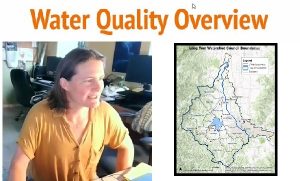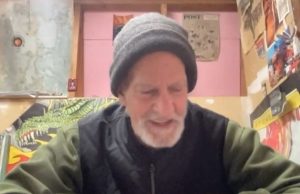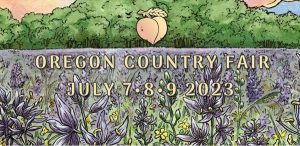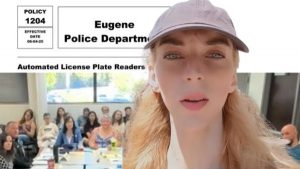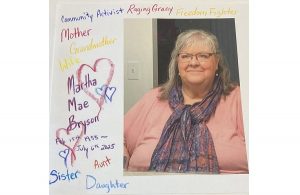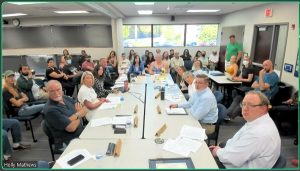Long Tom meeting April 20 shares ways to reduce pesticide use around the home
3 min read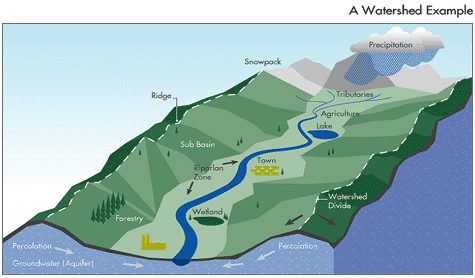
from the Long Tom Watershed Council
As spring ushers in longer days, many folks will be out planting gardens and tidying up their lawns and spaces around their homes. The warmer weather can also bring unwanted pests, and every year, an array of pesticides are used to control weeds and invasive plants, insects, rodents, and other wildlife.
These chemicals can have harmful impacts on water quality, native plants and wildlife, and on the drinking water of our downstream neighbors in Monroe.
Our April 20 public meeting, “Tools for Reducing Pesticide Use in and Around Your Homes,” will focus on providing tips, tools, and resources to understand the latest pesticide data and trends, and how you can reduce your pesticide use.
We will gather at the Eugene Public Library’s Bascom-Tykeson Room from 6 p.m. to 8 p.m.
Presenters will share information about the latest pesticide sampling data from Amazon Creek, and provide tips and resources for how you can reduce your pesticide inputs into our local waterways. This event is free and open to all, with snacks and beverages provided.
David Gruen, Columbia River coordinator at the Oregon DEQ, will share an overview and history of the PSP Program, and why it’s a priority for the State of Oregon. He’ll also help contextualize why we should be concerned about pesticides in our water and their impacts on water quality and aquatic communities, and how the impacts of pesticides are measured through aquatic benchmarks.
Amanda Reinholtz, LTWC’s river scientist & GIS specialist, will then share the latest results from pesticide monitoring data in Amazon Creek, the context of those results, and some actions people can take to reduce particular chemical detections of concern.
Chris Hedstrom, communications and outreach coordinator for OSU’s Integrated Pest Management Center, will present a new online resource from Oregon State University called “Solve Pest Problems.” Chris will walk attendees through how to use the site and discuss the content in the context of what we can be doing to reduce pesticide inputs into our waterways.
The website is written in accessible language with hundreds of photos to support viewers in understanding the information. Topics include dealing with insects in and around homes; mice, rats, and wildlife; lawn problems, challenging weeds, and invasive species. The site also includes extensive information about the safe use of pesticides.
Urban areas are incredibly complex with toxic inputs coming from myriad sources. While there have been encouraging signs in recent years that improvements have been made, consistent and continued incremental improvements depend upon an informed community willing to take the voluntary steps necessary to invest in the health of our watershed. Please join us to learn more about how you can do your part!
For 13 years, LTWC and partners have been monitoring pesticide presence in Amazon Creek as one of Oregon’s Pesticide Stewardship Partnerships (PSPs). Amazon Creek is the Long Tom River’s largest tributary and drains approximately 70% of the City of Eugene and about 23 miles of agricultural land downstream.
The PSP aims to monitor pesticides at locations throughout the Amazon Creek Watershed, determine which chemicals are of greatest concern to local water quality, and communicate results to local stakeholders to support and promote voluntary practices to help protect local water quality.
One early impact of the Amazon PSP was a greater understanding of the enormous role of urban land uses in sourcing and transporting pesticides and other water quality impairments to local waterways, an insight that helped give birth to the Urban Waters and Wildlife Program.
Last year, the Oregon DEQ released an online Data Viewer tool, accessible to anyone interested in seeing pesticide water quality data for over 130 different chemical products, for any of the 10 PSP impact areas in the state.
The Amazon PSP is a collaborative effort between LTWC, Oregon Department of Environmental Quality, Oregon Department of Agriculture, the City of Eugene, local stakeholders such as ag producers, and other area partners.
We’re grateful for the support of all of our partners who are helping us continue building toward a more trout-friendly and human-friendly Amazon Creek and Long Tom Watershed!
